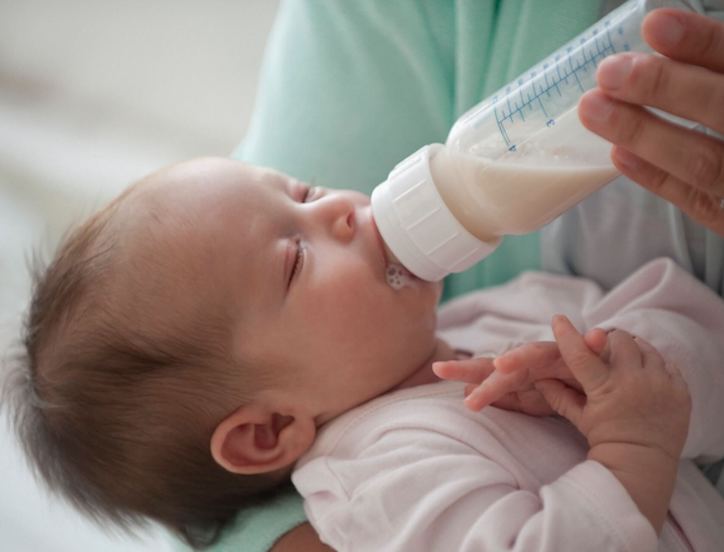Cronobacter sakazakii is one of the most virulent Cronobacter strains. It’s the strain most often associated with invasive Cronobacter infections. In infants, invasive Conobacter infections often cause sepsis (blood infections) and meningitis (swelling of the membranes surrounding the brain or spinal cord.)
Most Cronobacter infections in infants have been linked epidemiologically to powdered infant formula, according to numerous studies. Unlike liquid baby formula, powdered infant formula is not a sterile product. So it can, and sometimes does, contain harmful bacteria such as Cronobacter and Salmonella. That’s why, in 2002, the U.S. Food and Drug Administration (FDA) made a recommendation discouraging the use of powdered infant formulas in hospital settings.
Contact the Pritzker Hageman Food Safety Lawyers Today
Phone: 888-377-8900 | Text: 612-261-0856
Contact our Food Safety Lawyers Online
All Neonates are at High Risk
Years ago, it was believed that preterm infants were the only group at high risk for invasive Cronobater infections. But research shows all neonates (infants less than four weeks old) are at high risk of developing these serious, often fatal infections.
In 2006, CDC researchers analyzed 46 cases of invasive Cronobacter infections reported from 1998 to 2005 among infants who had consumed powdered infant formula. (Before 2007, Cronobacter sakazakii was called Enterobacter sakazakii.) They discovered that these severe infections can occur in full-term neonates, not just premature infants. They found 72 percent (33/36) of these infants had developed meningitis, 12 had bacteremia (blood infection) and one had a urinary tract infection.
Of the 33 babies with meningitis, 11 suffered seizures, and seven developed brain abscesses. Fourteen of them 14 (42 percent) died. Of the survivors, 74 percent “experienced an adverse neurologic outcome.”
Due to the dire outcomes enumerated in the study, researchers suggested the following steps that could be taken to mitigate the risk of Cronobacter in powdered infant formula. The first four recommendations were first made at a joint conference on infant formula safety in February 2004, by the World Health Organization and Food and Agriculture Organization of the United Nations.
- Encourage industry partners to develop a range of affordable sterile formula options.
- Consider setting an industry standard for Cronobacter in infant formula.
- Inform infant caregivers of the risks associated with nonsterile, powdered formula.
- Consider feeding high-risk infants sterile formula if they cannot breastfeed.
- Include all neonates in the high-risk category.
- Encourage rapid reporting of cases by clinicians to streamline data collection by local health departments.
- Manufacturer warning labels on powdered infant formula packages should stress that powdered infant formula is nonsterile and requires proper preparation, handling, and storage, and that sterile, liquid formula alternatives are available.
Severe Complications and High Mortality Rates
In a 2020 study, CDC researchers examined blood infections and meningitis from invasive Cronobacter infections among183 preterm and full-term infants from 24 countries. Seventy-nine cases, about 43 percent of the total, were reported from the U.S.
Of the total cases, 116 infants (63 percent) had meningitis and 67 (37 percent ) had bacteremia or blood infections.
Feeding histories were available for 102 of the infants. Of these, 81 (79 percent) had consumed powdered infant formula. The source of contamination was investigated in 71 cases and health officials were able to identify at least one contaminated environmental or food item in 31 of the 71 cases. Powdered infant formula was identified as the source in all but 10 of these cases.
Nearly all of the infants (95 percent) became ill within their first two months of life. About two-thirds fell ill within the first month. The median age for onset of symptoms was 13 days.
The overall fatality rate was 38 percent. Twenty-seven percent of the infants who survived suffered cerebral abscess or infarction, 16 percent developed hydrocephalus.
Cronobacter Meningitis Lawsuit
If your baby developed meningitis from a Cronobcater infection, please contact our legal team for a free consultation about a lawsuit. Our product liability lawyers have decades of experience successfully representing people injured or killed by unsafe products. We hold the makers of unsafe products responsible and help victims and their families obtain full and fair compensation. In one of our lawsuits, we recovered $10 million for babies who contracted a mysterious illness after ingesting a medical product that was later recalled.
Listed in U.S. News and World Report’s Best Law Firms in America, our law firm has a reputation for success in complex lawsuits. Our product liability lawyers have been interviewed by The New York Times, The Wall Street Journal, Lawyers USA, and other publications. We have recovered millions of dollars on behalf of people hurt or killed by defective items. If you would like to talk to a lawyer about your legal rights, please call 1-888-377-8900, text 612-261-0856, or complete the form below.
